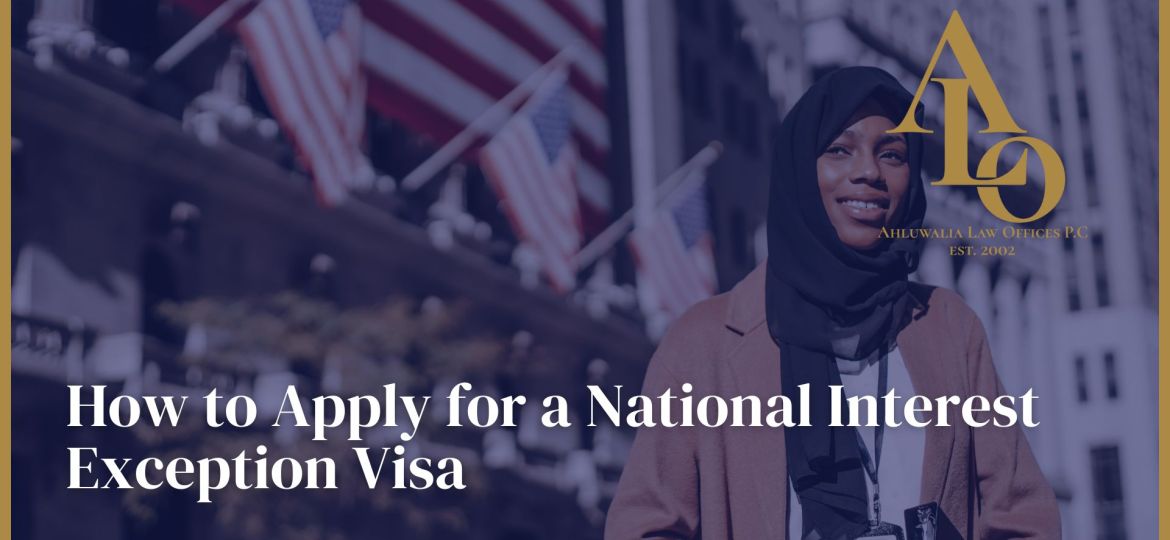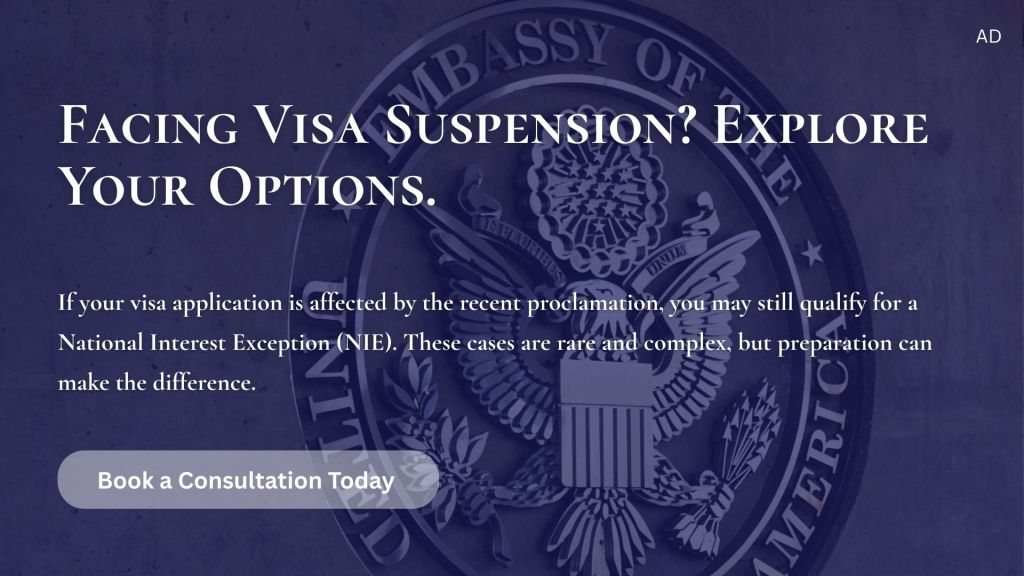
On June 9, 2025, Presidential Proclamation 10949 suspended the issuance of visas to certain foreign nationals. While this proclamation significantly restricts entry to the United States, there remains a narrow pathway for individuals whose travel is deemed to advance the U.S. national interest. This pathway is known as the National Interest Exception (NIE).
What Is a National Interest Exception?
Under Section 4(d) of the Proclamation, the Secretary of State (or a designated official, in coordination with the Secretary of Homeland Security) may authorize exceptions on a case-by-case basis. These exceptions are rare and reserved for applicants whose travel clearly advances the interests of the United States.
Examples may include:
- Supporting U.S. government or law enforcement objectives
- Contributing to national security priorities
- Competing in recognized international sporting events
- Urgent and critical medical treatment unavailable abroad
By contrast, routine purposes such as visiting relatives, routine business, employment, or study in the United States generally will not qualify.
How the Process Works
There is no standalone application for a National Interest Exception. Instead, the determination is made during the visa interview:
- File your visa application (such as DS-160 for nonimmigrant visas).
- Attend your consular interview. At this stage, you must explain how your travel serves U.S. national interests.
- Case review: If the consular officer believes your case warrants consideration, it is referred up to the Chief of Mission, and ultimately to senior Department of State officials.
- Final approval: Only the Secretary of State or designated officials may authorize the NIE.
Preparing for Your Interview
Applicants should be prepared to:
- Provide clear, specific reasons why their presence in the United States is critical to advancing a U.S. interest.
- Demonstrate they are otherwise eligible for the visa category sought.
- Show that they do not pose a national security or public safety risk.
It is strongly recommended to document how your proposed travel supports U.S. government priorities, contributes to critical infrastructure, or aligns with U.S. diplomatic, security, or economic objectives.
Key Takeaways for Applicants
- National Interest Exceptions are extremely rare.
- There is no pre-application—the review occurs during the normal visa process.
- Success depends on articulating and evidencing how your travel advances U.S. national interests.
For those affected by the suspension, careful preparation is essential. While family visits, employment, or study abroad are meaningful, only travel tied to the strategic priorities of the United States is likely to qualify.


